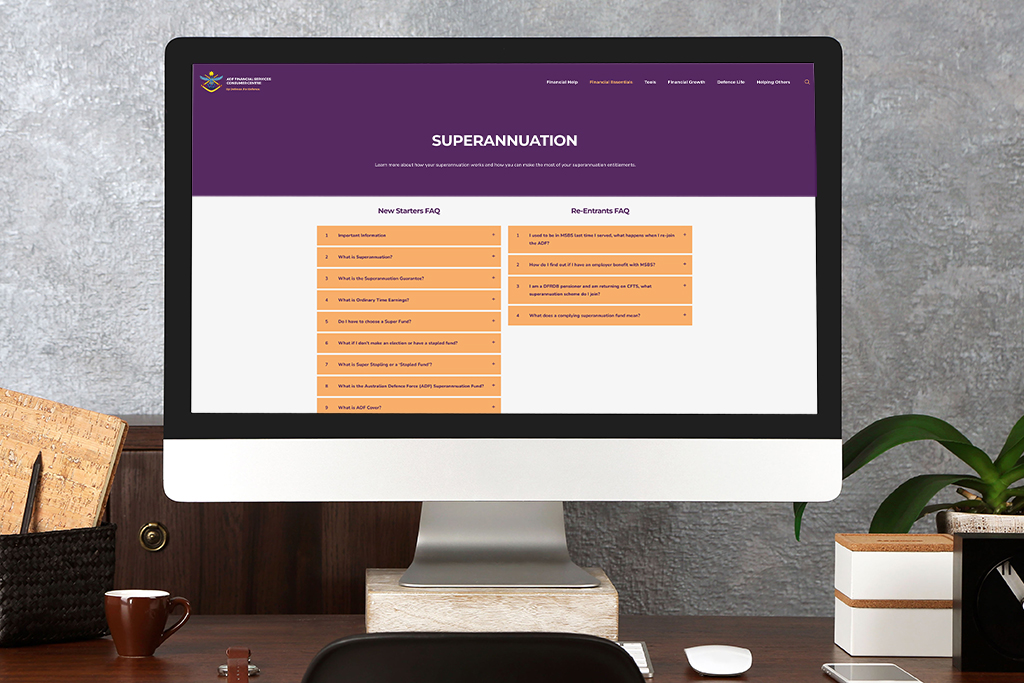
2023 Tax Return Deadlines
October 12, 2023
UNDERSTANDING SUPERANNUATION – our new FAQs
November 13, 2023Making significant personal financial decisions (such as building an investment portfolio or retiring) can be challenging, often giving rise to anxiety, uncertainty and risk. As much as we might like to be able to work things out for ourselves, the idea of having an experienced financial adviser in whom we can trust to advise and act in our best interests can be an attractive option.
Of course, not everyone needs or wants to consult a financial adviser. You are quite at liberty to make your own financial decisions without one. In fact, most Australians do just that (for better or for worse).
Become financially capable
The Centre encourages people to become financially capable and to make their own decisions, if only because no one will ever care about your financial affairs as much as you do. However, we also encourage people to make those decisions with a sceptical mindset, recognising their limitations and after research and careful consideration of options and alternatives (aka “due diligence”). Knee jerk financial decisions taken under pressure or with minimal “thinking time” are likely to end badly.
Having thought about your ability to make a significant financial decision, you may conclude that part of the “due diligence” process should be to seek professional advice from a licensed financial adviser. The next challenge will be finding a financial adviser.
ADF Financial Advice Referral Program
As a response to regular requests for referrals, the Centre established the ADF Financial Advice Referral Program (the Program). Its simple purpose is to connect ADF members with licensed financial advisers who undertake in writing to meet certain ethical and professional standards.
Essentially, those standards require advisers in the Program to not receive/charge any form of third party commissions, including on investment products, mortgages, life insurance and direct real estate. The advisers in the Program must also undertake to not charge fees based on a percentage of their clients’ assets and they must not receive any other form of product sales incentives. This arrangement must be in place for all of their clients, not just ADF members.
By adhering to these standards, the advisers in the Program are not in the conflicted position of receiving incentives to sell financial products or services that are inappropriate to their clients’ financial circumstances. Putting it another way, these advisers do not operate under the influence of remuneration-based conflicts of interest.
Therefore, if you’re dealing with a financial adviser in the Program, you should expect to pay a genuine “fee for service”, based on an hourly rate or a flat fee or a combination thereof.
Cost of Financial Advice
This raises the issue of the cost of financial advice. The first point to note is that financial advice can be expensive. In most cases, think thousands of dollars, not hundreds. That’s partly because of the complexity of the compliance-based laws under which advisers must operate and partly because personal financial advice is rarely simple. Government is currently examining proposals to lower the cost of advice by deregulating the industry, but don’t expect that fees will reduce any time soon.
Therefore, it’s important to understand the cost of advice before you appoint an adviser (whether or not they are part of the Program). All licensed financial advisers are required to advise you of the cost of their advice (in a document called a Financial Services Guide or FSG), but it would nevertheless be sensible to have a discussion up-front about fees so as to minimise the possibility of a misunderstanding down the track.
Scope of Advice
It would also be sensible to have a conversation about the scope of advice that you’re seeking. That’s because there is a range of business models in the financial advice profession, including amongst advisers in our Program. Some advisers prefer to offer comprehensive advice (often called “holistic advice”), while others offer limited, issues-based or one-off advice. Some advisers offer both. Therefore, we recommend making contact with more than one adviser so as to make sure that what’s on offer is what you need or want. In that regard, reading through an adviser’s website can also be useful.
Resources to read, watch and review
If you’re seriously thinking about consulting a financial adviser (whether or not they are part of the Program), we recommend as a minimum that you should:
- Read the section of the Centre’s website titled Getting Financial Advice. This will help you to understand the financial advice process and outlines some of the questions you should/could ask of a prospective adviser.
- Watch our short film Financial Advisers – The Facts and the Fiction.
- Review the ADF Financial Advice Referral Program. This contains the names, locations and contact details of all the advisers in the Program.
- Review the Australian Securities and Investments Commission’s Financial Advisers Register. This lists all the advisers currently licensed in Australia, including participants in our Program.







